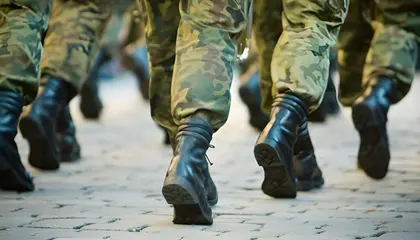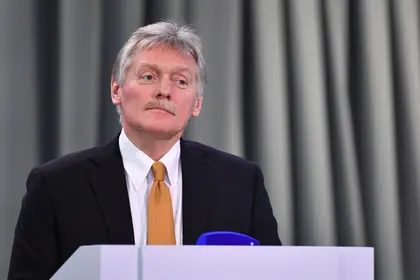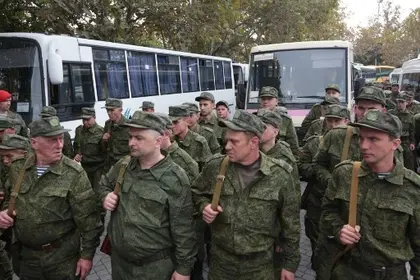Russia’s full-scale invasion has taken its toll on the disadvantaged population of young Russian men, and the Kremlin reportedly may be trying to deflect possible criticism from its core of ethnically Russian citizens in Moscow and St. Petersburg to avoid civil unrest.
As Moscow’s autumn conscription cycle kicked off on Oct. 1, as it does every year, draft notices were issued in both mainland Russia and the occupied territories of Ukraine.
JOIN US ON TELEGRAM
Follow our coverage of the war on the @Kyivpost_official.
Once again it was noticeable that ethnic minorities were being disproportionately hit by the draft, as they were in the previous year.
The New York Times reported in September 2022, for example, that in occupied Crimea all but two of the 48 people who were issued draft notices were ethnic Tatars. This is hardly surprising when one considers the ethnic make-up of Russia’s forces in Ukraine which are predominantly from far-flung parts of the Russian Federation such as Buryatia and the Muslim provinces of the North Caucasus, Chechnya and Dagestan.
This year it seems that the focus now not only includes ethnic minorities but other marginalized and potentially desperate groups with the instructions for carrying it out having been formalized.
The Russian investigative news website Vazhnye Istorii, published copies of an official letter it had obtained in a report issued on Thursday.
The Oct. 3 document appears to originate from Sergei Svitin an official from the “Presidential Envoy to Russia’s Central Federal District” and is addressed to Alexander Plyaskin, Head of the National Guard for the Tver Region.

Russia Sentences Navalny Lawyers to Years Behind Bars
The letter reminds the recipient that the Russian government gave directions for the issue of military recruitment orders on March 1, 2023, and says there will be a meeting in Tver at 16:00 on Wednesday Oct. 4 to discuss the issues.
The Vazhnye Istorii report gives details of a document attached to the letter which orders regional officials to provide a weekly report on the numbers of individuals who are approached and agree to sign military contracts and provides a template for compiling the return.
It also requires federal and regional authorities to establish a recruitment plan including objectives for numbers to be achieved and for progress reports to be given.
The Presidential Envoy to Russia’s Central Federal District letter and report template. Screenshot from Vazhnye Istorii reportr
The attachment identifies 22 categories of Russians who are to be priority targets as “volunteers” for contract-based recruitment into the military. In addition to the groups one would expect to be included such as reservists, conscripts and those who have already indicated a wish to volunteer it details others who should be encouraged to sign a contract to serve. This list includes:
- Minor criminals
- Individuals serving prison sentences
- Former members of private military companies
- Persons with significant debt including bankruptcy or those owing money for Federal tax
- The unemployed or those registered with the employment service
- Those who have recently acquired Russian citizenship
- Foreign citizens who are unemployed or subject to expulsion or deportation
- Employees of enterprises that have agreed to quotas for employee participation in the so-called “special military operation”
- Current employees of private security companies
Sergei Krivenko, founder and head of who heads the NGO “Citizen, Army & the Law,” which is an organization dedicated to protecting the rights of conscripts said “The recruitment letter reveals that the Russian military still struggles to motivate people to voluntarily sign up for its war in Ukraine.
“Signing a contract is still voluntary, but it’s possible to persuade, set conditions or make life unbearable,” Krivenko told Vazhnye Istorii.
He also alluded to the tactics that recruiters had used to satisfy the Oct. 25 boast by Dmitry Medvedev, Russian Security Council Deputy Chairman, that 305,000 new contract soldiers have signed up in 2023.
“Medvedev is ‘very crafty.’ One of the channels for replenishing the army is conscripts… [who] are subjected to intense pressure. Many are deceived and a contract is signed for them – I think that about a third of this figure that Medvedev named are just conscripts.
“The second point is that people from PMCs and LDPR [Russian-occupied areas of Luhansk and Donetsk regions of Ukraine – ed.] formations were transferred under the control of the [Russian] Ministry of Defense, and they were also forced to sign contracts.”
“It feels like they’re getting rid of a marginalized layer of society,” an anonymous recruitment officer in one of Russia's regions was quoted as saying by Vazhnye Istorii.
“They don’t care at all about the quality of the army,” the officer added. “They don’t care what will happen to [the recruits’] families after they’re deployed.”
Krivenko ended by saying “If everything was so good and people were signing contracts themselves, we wouldn’t need all these tricks and efforts by regional authorities, or to monitor and kick those regional officials.”
You can also highlight the text and press Ctrl + Enter












